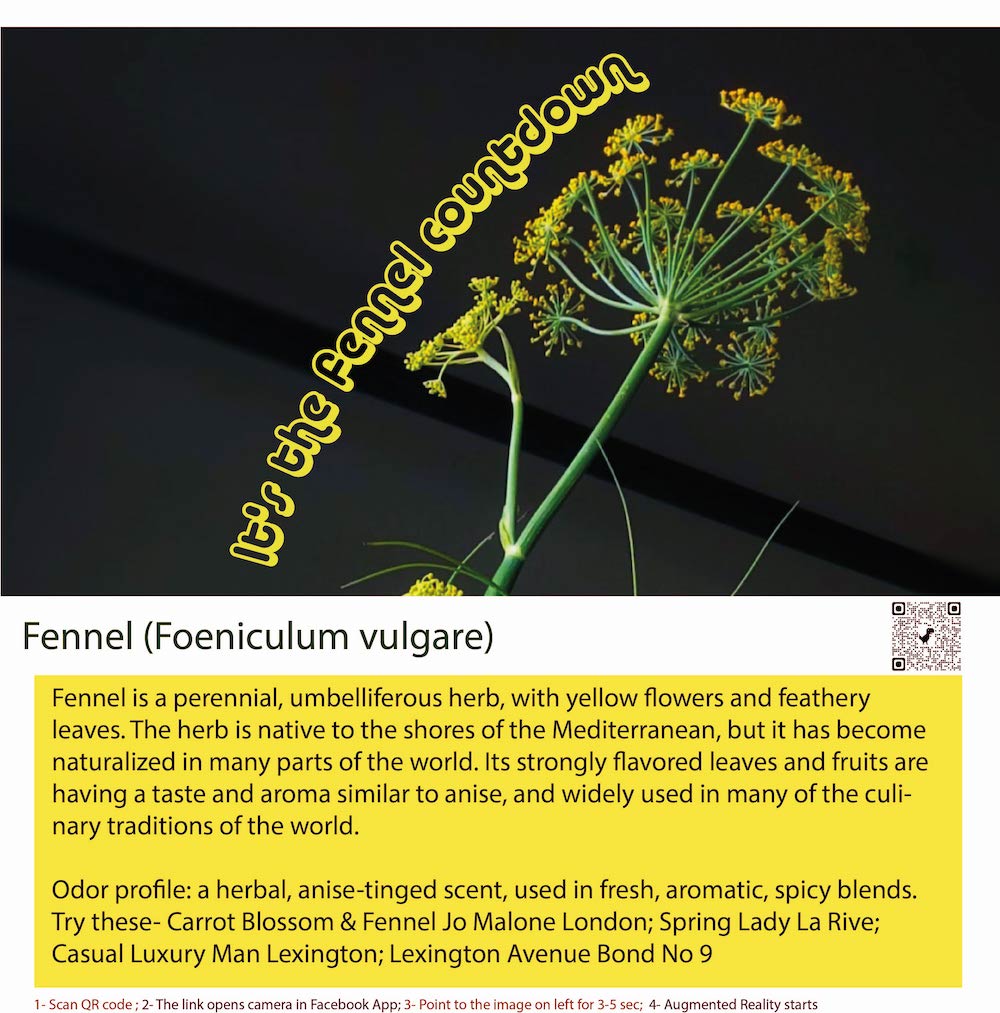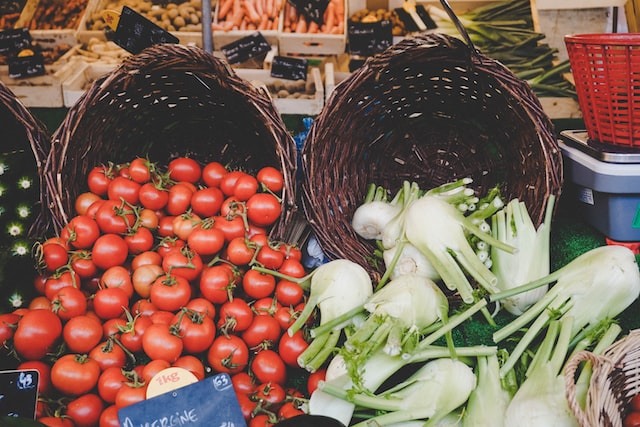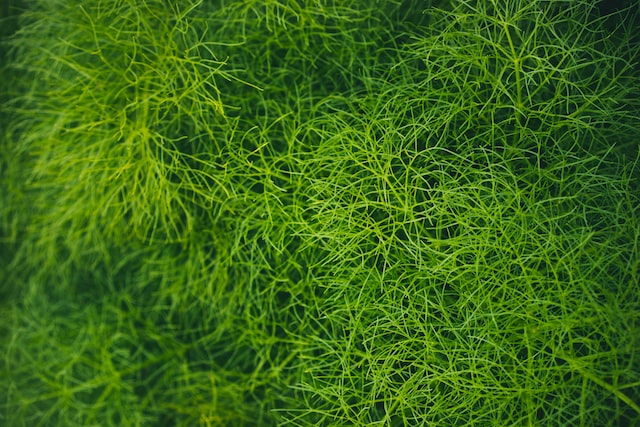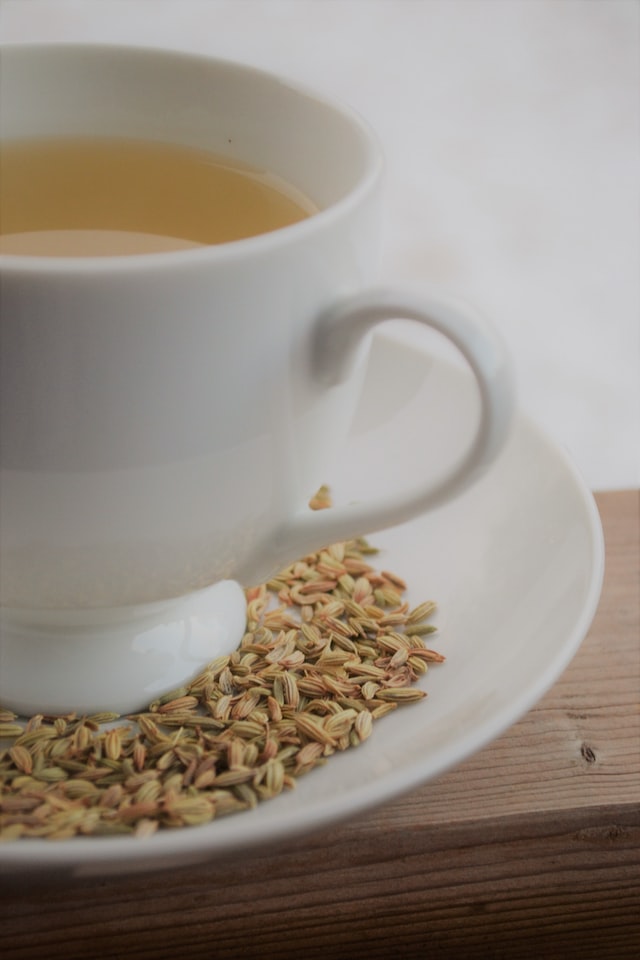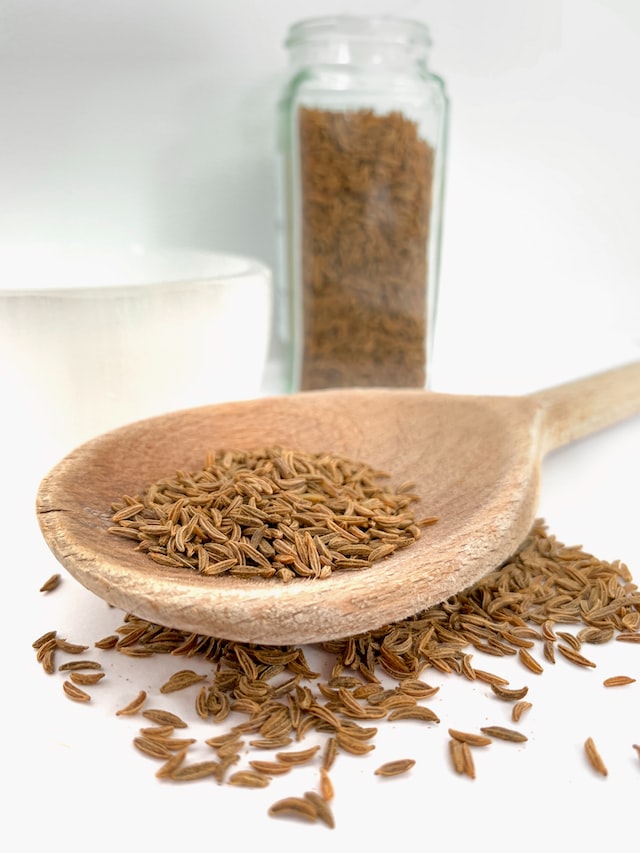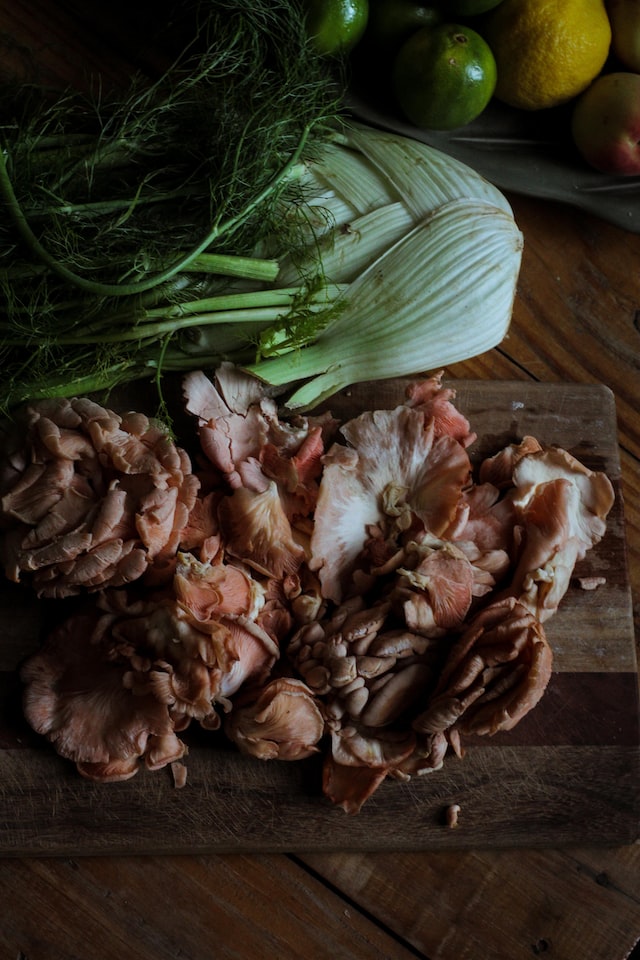Elevate Your Grooming with Fougère Woody Fresh Scent
Fennel: The Versatile Herb of Aromas and Flavors - From Perfumes to Fun Crazy Facts
Fennel, scientifically known as Foeniculum vulgare, is a versatile and aromatic herb that has been treasured for its myriad of uses throughout history. This remarkable plant holds a prominent place in various domains, including perfumes, fragrance, therapeutic oils, food, medicinal systems, history, and even fun crazy facts. In this article, we embark on a journey to explore the captivating allure of fennel, uncovering its diverse applications and intriguing characteristics that have fascinated people around the world.
1. Fennel in Perfumes and Fragrance
Fennel's sweet, licorice-like aroma has inspired perfumers to incorporate its essence into fragrances. The essential oil extracted from fennel seeds boasts a warm and spicy scent that adds a touch of sophistication to perfumes. Fennel extract is often used in fragrances that aim to evoke a sense of intrigue and allure.
2. Fennel in Therapeutic Oils
Fennel essential oil is renowned for its therapeutic properties in aromatherapy. Inhalation of fennel oil is believed to aid in digestion, ease feelings of discomfort, and promote relaxation. The oil's soothing properties have made it a valuable ingredient in massage oils and relaxation blends.
3. Fennel in Culinary Delights
Fennel is treasured for its culinary uses, particularly in Mediterranean and Indian cuisines. The bulb, stalks, leaves, and seeds of the fennel plant are all edible and offer a distinct, licorice-like flavor to dishes. Fennel seeds are commonly used as a spice and are included in various spice blends and bread recipes.
4. Fennel in Medicinal Systems
Fennel has a long history of use in traditional medicine for various health benefits. It has been used to aid digestion, soothe indigestion, and alleviate symptoms of colic in infants. Additionally, fennel has been traditionally used to promote lactation in breastfeeding mothers.
5. Historical Significance of Fennel
Fennel has been revered throughout history for its medicinal and culinary properties. It has been mentioned in ancient texts and was highly valued by ancient civilizations such as the Egyptians, Greeks, and Romans.
6. Fun and Crazy Facts about Fennel
a. Fennel in Mythology: In Greek mythology, fennel was associated with the god Prometheus, who stole fire from the gods and concealed it in a hollow fennel stalk.
b. A Symbol of Strength: Fennel was considered a symbol of strength and longevity in ancient times, and it was believed to convey courage and protection.
c. Fennel in Traditional Festivals: In some cultures, fennel was used as a decoration during festive occasions, symbolizing prosperity and good luck.
d. Fennel as a Breath Freshener: In ancient Rome, fennel seeds were chewed after meals to freshen breath and aid digestion.
e. Fennel's Medicinal Uses: Apart from aiding digestion, fennel was believed to have a calming effect on the mind and body and was used to relieve anxiety and stress.
Fennel, with its diverse applications and intriguing aroma, stands as a versatile herb cherished in perfumes, therapeutic oils, food, and beyond. From its contributions to aromatherapy and culinary delights to its historical significance and fun facts, fennel continues to captivate and inspire. Whether it's adding a touch of sophistication to perfumes or enhancing the flavors of culinary creations, fennel's allure lies in its versatility and rich cultural heritage. As we celebrate fennel's contributions to various aspects of human life, it stands as a testament to the timeless appeal of aromatic herbs and their ability to enrich our senses and daily experiences.
Fennel, scientifically known as Foeniculum vulgare, is a versatile and aromatic herb that has been treasured for its myriad of uses throughout history. This remarkable plant holds a prominent place in various domains, including perfumes, fragrance, therapeutic oils, food, medicinal systems, history, and even fun crazy facts. In this article, we embark on a journey to explore the captivating allure of fennel, uncovering its diverse applications and intriguing characteristics that have fascinated people around the world.
1. Fennel in Perfumes and Fragrance
Fennel's sweet, licorice-like aroma has inspired perfumers to incorporate its essence into fragrances. The essential oil extracted from fennel seeds boasts a warm and spicy scent that adds a touch of sophistication to perfumes. Fennel extract is often used in fragrances that aim to evoke a sense of intrigue and allure.
2. Fennel in Therapeutic Oils
Fennel essential oil is renowned for its therapeutic properties in aromatherapy. Inhalation of fennel oil is believed to aid in digestion, ease feelings of discomfort, and promote relaxation. The oil's soothing properties have made it a valuable ingredient in massage oils and relaxation blends.
3. Fennel in Culinary Delights
Fennel is treasured for its culinary uses, particularly in Mediterranean and Indian cuisines. The bulb, stalks, leaves, and seeds of the fennel plant are all edible and offer a distinct, licorice-like flavor to dishes. Fennel seeds are commonly used as a spice and are included in various spice blends and bread recipes.
4. Fennel in Medicinal Systems
Fennel has a long history of use in traditional medicine for various health benefits. It has been used to aid digestion, soothe indigestion, and alleviate symptoms of colic in infants. Additionally, fennel has been traditionally used to promote lactation in breastfeeding mothers.
5. Historical Significance of Fennel
Fennel has been revered throughout history for its medicinal and culinary properties. It has been mentioned in ancient texts and was highly valued by ancient civilizations such as the Egyptians, Greeks, and Romans.
6. Fun and Crazy Facts about Fennel
a. Fennel in Mythology: In Greek mythology, fennel was associated with the god Prometheus, who stole fire from the gods and concealed it in a hollow fennel stalk.
b. A Symbol of Strength: Fennel was considered a symbol of strength and longevity in ancient times, and it was believed to convey courage and protection.
c. Fennel in Traditional Festivals: In some cultures, fennel was used as a decoration during festive occasions, symbolizing prosperity and good luck.
d. Fennel as a Breath Freshener: In ancient Rome, fennel seeds were chewed after meals to freshen breath and aid digestion.
e. Fennel's Medicinal Uses: Apart from aiding digestion, fennel was believed to have a calming effect on the mind and body and was used to relieve anxiety and stress.
Fennel, with its diverse applications and intriguing aroma, stands as a versatile herb cherished in perfumes, therapeutic oils, food, and beyond. From its contributions to aromatherapy and culinary delights to its historical significance and fun facts, fennel continues to captivate and inspire. Whether it's adding a touch of sophistication to perfumes or enhancing the flavors of culinary creations, fennel's allure lies in its versatility and rich cultural heritage. As we celebrate fennel's contributions to various aspects of human life, it stands as a testament to the timeless appeal of aromatic herbs and their ability to enrich our senses and daily experiences.
To experience augmented reality, please open the Facebook-app using QR code and point to the image below
Fennel is a perennial herb that is native to the Mediterranean region. It has a distinct licorice or anise flavor and is commonly used in cooking and as a medicinal herb. The bulb, stalks, and fronds of the plant are all edible and are often used in salads, soups, and as a seasoning for fish and other meats. It is also used as a digestive aid, and is believed to have anti-inflammatory properties. It is usually eaten cooked.
Experience Masculine Elegance with Fennel Fragrance
Fennel has a long history of use both as a food and as a medicinal herb. It was believed to have originated in the Mediterranean region and was used by ancient Egyptians, Greeks, and Romans for both culinary and medicinal purposes. The ancient Greeks believed that fennel had the power to increase strength and endurance, and the Romans used it as a breath freshener.
In medieval times, fennel was commonly used as a strewing herb, which was spread on the floors of homes to freshen the air and repel insects. Fennel was also used in traditional medicine to treat a variety of ailments, such as digestive issues and respiratory problems.
Fennel continues to be used in traditional medicine today, particularly in Ayurvedic and Chinese medicine. It is believed to have anti-inflammatory properties and is commonly used to treat digestive issues, such as bloating and gas. It is also used as a natural remedy for menstrual cramps and as a natural diuretic.
In the culinary field, Fennel is a popular ingredient in many Mediterranean and Asian dishes. The bulb, stalks, and fronds are all edible and are often used to add a licorice or anise flavor to salads, soups, and as a seasoning for fish and other meats.
In medieval times, fennel was commonly used as a strewing herb, which was spread on the floors of homes to freshen the air and repel insects. Fennel was also used in traditional medicine to treat a variety of ailments, such as digestive issues and respiratory problems.
Fennel continues to be used in traditional medicine today, particularly in Ayurvedic and Chinese medicine. It is believed to have anti-inflammatory properties and is commonly used to treat digestive issues, such as bloating and gas. It is also used as a natural remedy for menstrual cramps and as a natural diuretic.
In the culinary field, Fennel is a popular ingredient in many Mediterranean and Asian dishes. The bulb, stalks, and fronds are all edible and are often used to add a licorice or anise flavor to salads, soups, and as a seasoning for fish and other meats.
Fennel fun facts
- Fennel is a member of the carrot family, which also includes dill, caraway, and cumin.
- The ancient Greeks believed that fennel had the power to increase strength and endurance, and the Romans used it as a breath freshener.
- Fennel is sometimes called "sweet fennel" to distinguish it from "bitter fennel," which is a different plant that is not typically used as a food or medicine.
- Fennel seeds are often chewed after a meal to freshen breath and aid digestion.
- Fennel is a popular ingredient in the Mediterranean and Asian cuisine, where it is often used to add a licorice or anise flavor to dishes.
- Fennel leaves and bulb are edible and can be used in salads, soups, and as a seasoning for fish and other meats.
- Fennel is considered to have anti-inflammatory properties, and is commonly used to treat digestive issues, such as bloating and gas.
- Fennel is also used in traditional medicine as a natural remedy for menstrual cramps and as a natural diuretic.
- Fennel is a perennial herb that can grow up to 5 feet tall and has yellow flowers that bloom in the summer.
Unveiling the Power of Fougère Aroma Profile
Fennel has a long history of use in traditional medicine and is believed to have various medicinal properties. Some of the medicinal properties of fennel include:
- Digestive aid: Fennel has been traditionally used as a digestive aid and is believed to relieve bloating, gas, and constipation. It is thought to stimulate the production of bile and other digestive enzymes, which can help to improve digestion.
- Anti-inflammatory: Fennel is believed to have anti-inflammatory properties and may be helpful in reducing inflammation in the body, particularly in the digestive tract.
- Respiratory health: Fennel is also believed to be beneficial for respiratory health, and is used in traditional medicine to relieve symptoms of coughs, colds, and bronchitis.
- Menstrual cramps: Fennel is believed to have a relaxing effect on the uterus, which can make it helpful in relieving menstrual cramps.
- Diuretic: Fennel is also believed to have a natural diuretic effect, which means it can help to increase urine production and reduce water retention in the body.
The Art of Crafting Fougère Woody Fresh Scents
Fennel has a distinct licorice or anise scent that can be used in perfumery. The essential oil of fennel is used in perfumes, soaps, and other personal care products to give them a unique, sweet, and refreshing aroma. The oil is extracted from the seeds of the fennel plant and is known for its calming and soothing properties.
In perfumery, fennel essential oil is used as a middle or base note, and it can be blended with other essential oils such as lavender, bergamot, orange, and patchouli to create a unique fragrance. Its scent is described as a sweet, spicy and herbal aroma with a subtle licorice note.
Fennel is also used in traditional perfumery, it was used in medieval times to mask unpleasant odors and was used to purify the air. The licorice-like scent of fennel was used to freshen the air and repel insects.
It is important to note that while fennel oil has been traditionally used in perfumery, it should be used with caution as it can cause skin irritation and may be toxic if ingested. It is recommended to use fennel oil in low concentrations and to patch test before using it in any products. As always, it is important to consult with a qualified perfumer or aromatherapist before using fennel oil in perfumery.
In perfumery, fennel essential oil is used as a middle or base note, and it can be blended with other essential oils such as lavender, bergamot, orange, and patchouli to create a unique fragrance. Its scent is described as a sweet, spicy and herbal aroma with a subtle licorice note.
Fennel is also used in traditional perfumery, it was used in medieval times to mask unpleasant odors and was used to purify the air. The licorice-like scent of fennel was used to freshen the air and repel insects.
It is important to note that while fennel oil has been traditionally used in perfumery, it should be used with caution as it can cause skin irritation and may be toxic if ingested. It is recommended to use fennel oil in low concentrations and to patch test before using it in any products. As always, it is important to consult with a qualified perfumer or aromatherapist before using fennel oil in perfumery.
Creating Lasting Impressions with Fennel Aromatic Notes
There are several perfumes that use fennel essential oil as an ingredient, some of the most famous ones are:
- "Fennel Harvest" by Jo Malone: This perfume is a unisex scent that features fennel as the main ingredient, blended with other essential oils such as mandarin and nutmeg. It has a sweet, spicy, and woody aroma.
- "Fennel Patchouli" by L'Artisan Parfumeur: This perfume is a unisex scent that features fennel as the main ingredient, blended with patchouli and other essential oils. It has a warm and spicy aroma.
- "Fennel and Absinthe" by Imaginary Authors: This perfume is a unisex scent that features fennel as the main ingredient, blended with Absinthe and other essential oils. It has a licorice, anise, and spicy aroma.
- "Fennel Musk" by Le Labo: This perfume is a unisex scent that features fennel as the main ingredient, blended with musk and other essential oils. It has a licorice, anise, and musky aroma.
- "Fennel and Sage" by Jo Loves: This perfume is a unisex scent that features fennel as the main ingredient, blended with Sage and other essential oils. It has a licorice, anise, and herbal aroma.
Join Scentopia, Sentosa's latest tourist attraction wonderful orchid scent crafting, fragrance tour, bridal shower or corporate team building which includes perfume making onsite and offsite, beach activities and more. We also serve primary school learning journey, secondary students and pupil on industrial excursions. Know more about our orchids perfume bar or therapeutic orchid scents and other wellness aromas. Conatct Perfume workshop or book a scent crafting session here.

